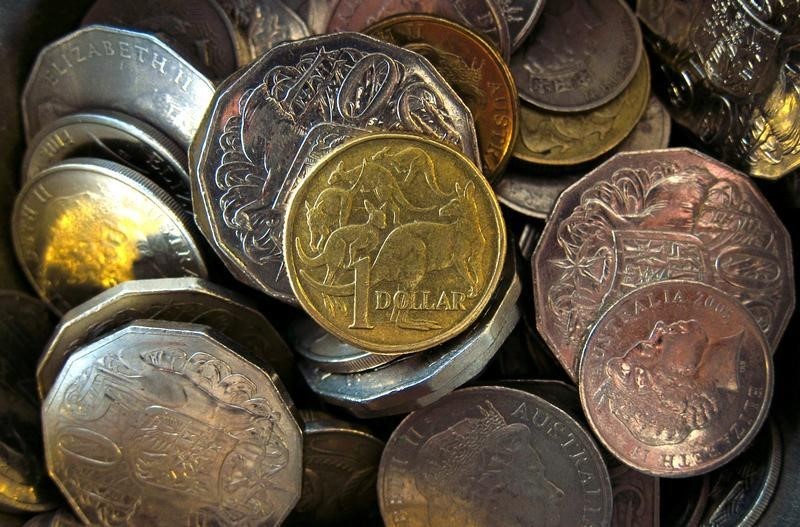Investing.com - The Aussie rebounded and the dollar gave up early gains against the yen after a China data suite led by GDP raised regional sentiment in otherwise cautious trade as investors await the inaugural address of Donald Trump as president of the United States.
AUD/USD traded at 0.7583, up 0.29% with China the top trade destination for key commodities from Australia, while USD/JPY changed hands at 114.56, down 0.26%.
China's gross domestic product (GDP) grew 6.8% year-on-year in the fourth quarter, slightly beating expectations by analysts of 6.7% growth for the calendar year, but in line with estimates from the head of China's state planning agency.
The figures likely signaled that China's economic growth is starting to stabilize as it transitions from heavy manufacture to domestic-led consumption.
For the quarter-on-quarter GDP figure the increase of 1.7% as expected. Industrial production gained 6.0%, a tick below the 6.1% rise seen, while retail sales jumped 10.9%, beating the 10.7% increase expected.
Earlier, Federal Reserve Chair Janet Yellen said that running a "hot" economy for an extended period would be a risk.
"I think that allowing the economy to run markedly and persistently "hot" would be risky and unwise," Yellen said in remarks prepared for delivery to the Stanford Institute for Economic Policy Research.
While there are no signs as yet that the Fed is behind the curve or the economy is in danger of a sudden surge in inflation, she said, "I consider it prudent to adjust the stance of monetary policy gradually over time."
The U.S. dollar index, which measures the greenback’s strength against a trade-weighted basket of six major currencies, fell 0.23% to 100.87.
Overnight, the dollar held onto gains against the other majors currencies on Thursday, helped by upbeat U.S. data, although investors remained cautious ahead Donald Trump’s inauguration on Friday.
European Central Bank President Mario Draghi acknowledged that the growth outlook for the euro area has improved, but reiterated that quantitative easing can be increased if the outlook becomes less favorable.
The comments came after the ECB left its benchmark interest rate unchanged at a record-low 0.0%, in line with forecasts, and kept the size of its monthly quantitative easing program at approximately €80 billion.
In the U.S., the Department of Labor said initial jobless claims in the week ending January 14 fell by 15,000 to 234,000. Analysts expected jobless claims to rise by 5,000 to 254,000 last week.
In addition, the U.S. Commerce Department said housing starts increased by 11.3% to 1.226 million units last month, beating expectations for a rise to 1.200 million units.
However, building permits unexpectedly decreased by 0.2% to 1.210 million units in December. A separate report showed that the Philly Fed manufacturing index rose to 23.6 last month from 21.5 in November, compared to expectations for a rise to 15.8.
